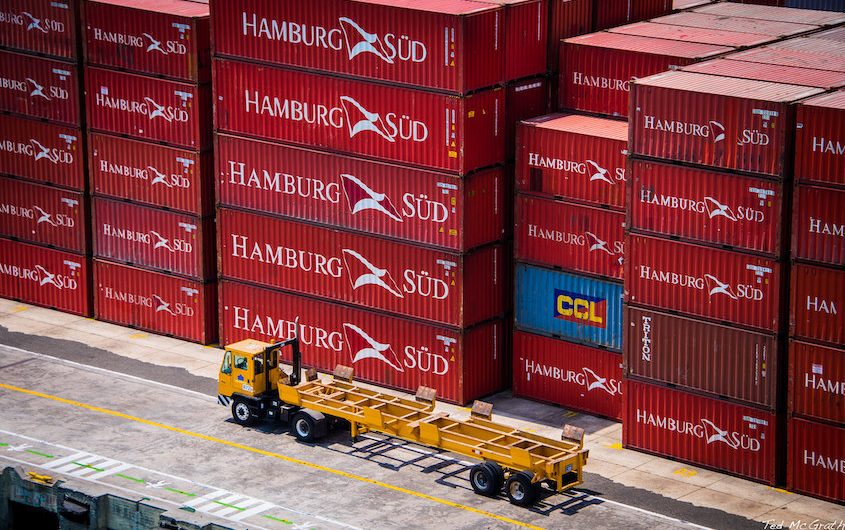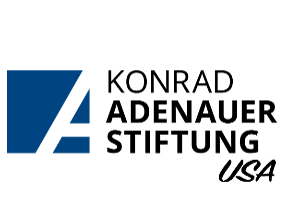
Ted McGrath, via Flickr
AGI-KAS Transatlantic Trade Week
  |
With the advent of the Biden administration, both the tone and the substance of transatlantic economic relations are already improving. Although a number of bilateral irritants remain, there is now an opportunity for a common agenda on a range of key trade policy challenges.
In this new context, the American-German Institute at Johns Hopkins University and the Konrad-Adenauer-Stiftung are collaborating on a series of online events examining three areas for U.S.-EU trade policy cooperation. These include agreeing a joint approach to China’s economic behavior through a better balance between engagement and enforcement; reforming the World Trade Organization through new rules in areas like subsidies and state-owned enterprises and reviving its dispute settlement system; and reconciling trade and climate policy goals through the WTO, supply chain strategy, and a carbon border adjustment mechanism.
June 28th – Session One
Engagement vs. Enforcement: How Can the United States and Germany Manage China’s Impact on the Global Economy?
With three trade and investment agreements in 2020 as background—the U.S. “Phase I” deal with China, the Regional Comprehensive Economic Partnership, and the EU-China Comprehensive Agreement on Investment—this webinar will explore how the United States and Germany can strike a balance between economic interdependence and the use of trade enforcement tools with China to promote transatlantic prosperity while safeguarding values and security interests.
Opening Remarks:
Peter Beyer MdB, Member of the German Bundestag and Coordinator of Transatlantic Cooperation of the Federal Government
Discussants:
Wendy Cutler, Vice President and Managing Director, Asia Society Policy Institute (ASPI)
Dr. Volker Treier, Chief Executive of Foreign Trade, Member of the Executive Board, Association of German Chambers of Commerce and Industry (DIHK)
June 29th – Session Two
Reforming the World Trade Organization: Can the United States and the European Union Find Common Ground?
The U.S. and the EU appear to be growing closer on both their understanding of where the WTO is falling short and what to do about it. This webinar will examine how to modernize the WTO’s negotiating, monitoring, and dispute resolution functions, with a particular focus on where there is a need for new rules and how to shape them within a multilateral trading system that has become more diverse and disorderly. The role of plurilateral agreements in areas like subsidies and state-owned enterprises as a stepping-stone to WTO reform will be an important focus of this session.
Opening Remarks:
Dr. Sabine Weyand, Director-General for Trade, European Commission
Discussants:
Amb. Rufus Yerxa, President, National Foreign Trade Council (NFTC)
Prof. Gabriel Felbermayr, President, Kiel Institute for the Global Economy
June 30th – Session Three
Reconciling Trade Policy and Climate Goals
This event will examine three key issues. One will be the prospects for climate-friendly progress in the WTO, such as the Environmental Goods Agreement, and subsidies rules that discourage fossil fuel use and promote renewable energy. Another will be the resilience of supply chains and the potential for transatlantic cooperation to promote sustainability within them. Finally, it will look at how a joint U.S.-EU approach to a carbon border adjustment mechanism could take shape and potentially be expanded to other like-minded countries.
Opening Remarks:
Jamila Thompson, Senior Advisor to the U.S. Trade Representative
Discussants:
Dr. Susanne Dröge, Senior Fellow, German Institute for International and Security Affairs (SWP)
William Reinsch, Scholl Chair in International Business, Center for Strategic and International Studies (CSIS)
Prof. Simon Evenett, University of St. Gallen, Switzerland
If you have questions regarding the events, please contact Yixiang Xu at yxu@aicgs.org.
The AGI-KAS Transatlantic Trade Week is generously supported by The Konrad-Adenauer-Stiftung (KAS).






